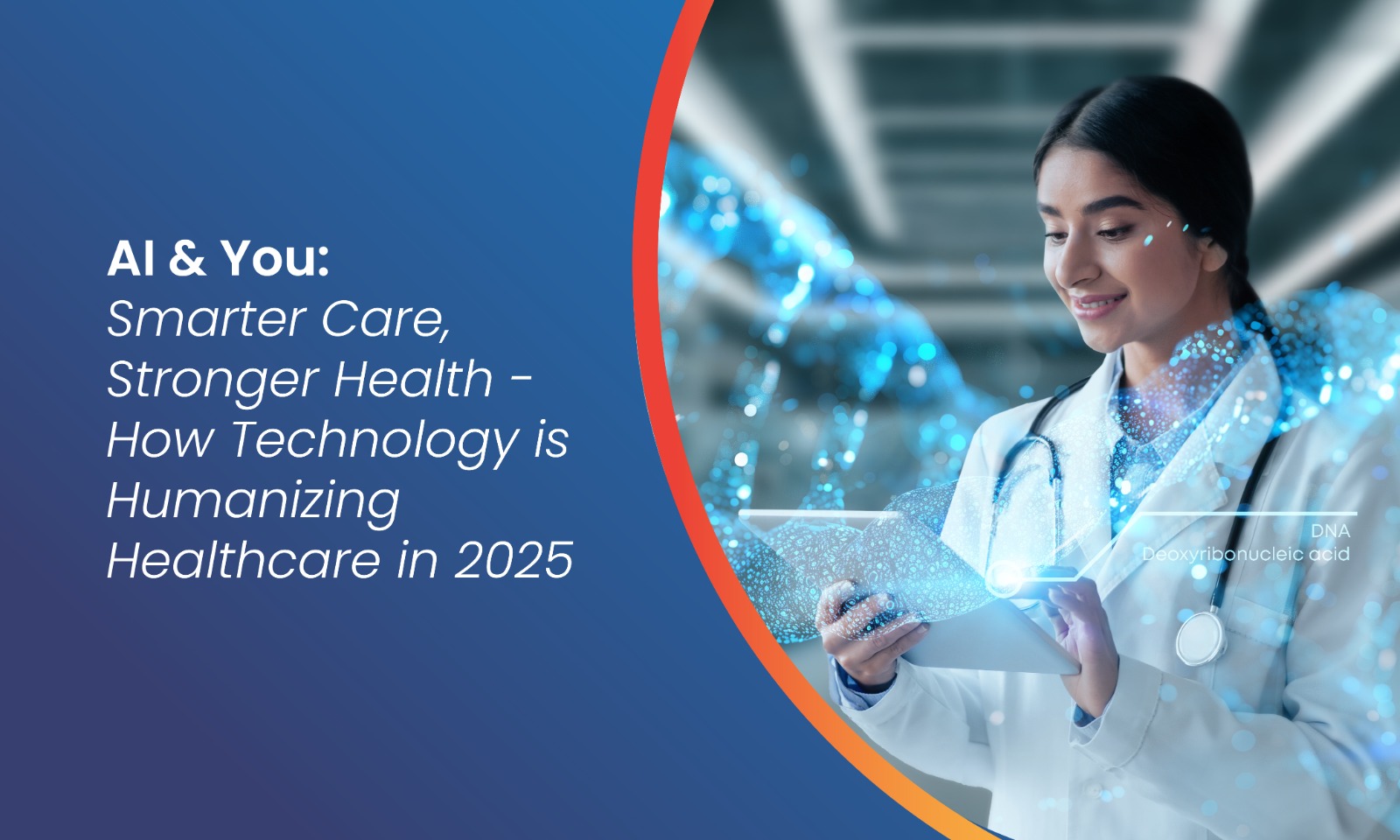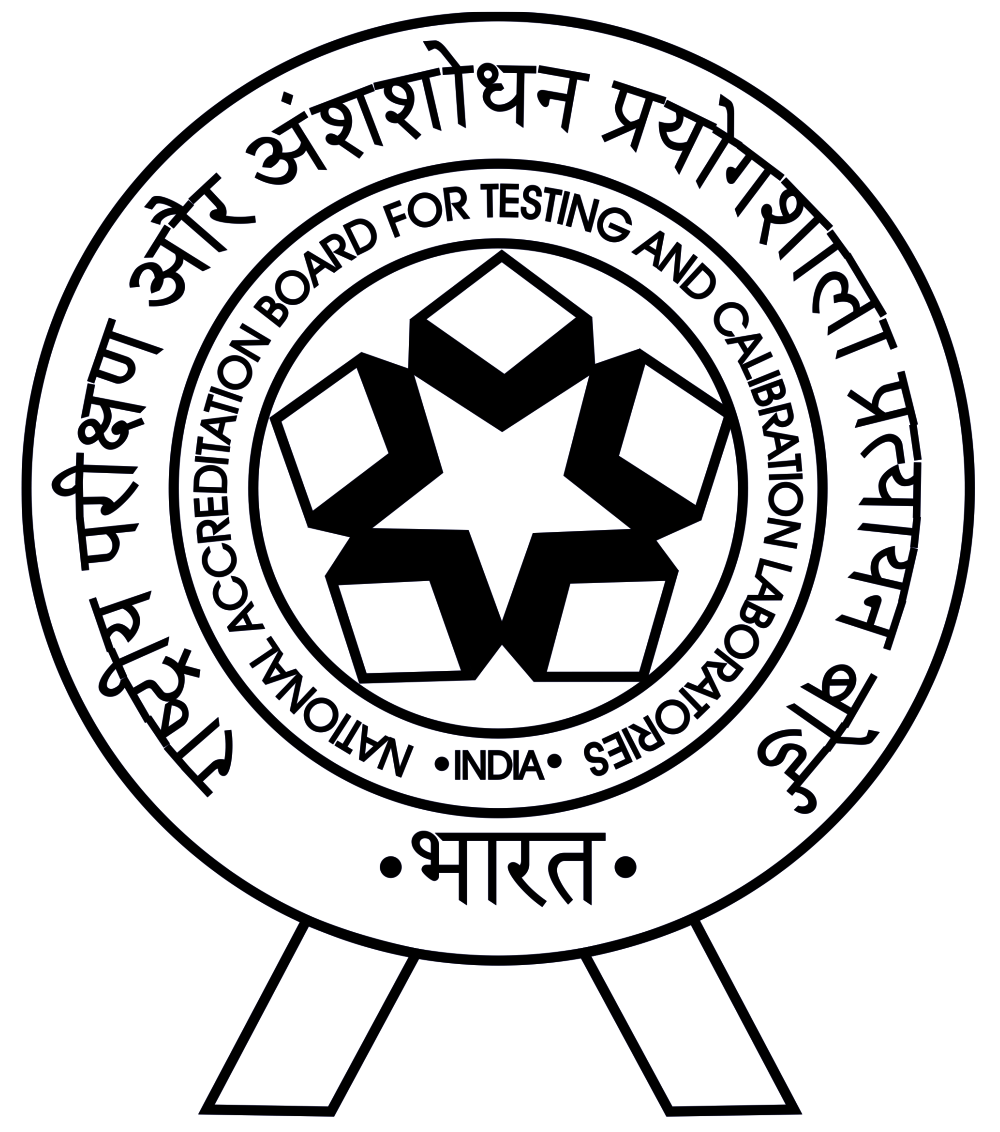AI & You: Smarter Care, Stronger Health - How Technology is Humanizing Healthcare in 2025

2025 is a turning point in the history of medicine, as artificial intelligence (AI) moves from a future promise to a necessary tool for the healthcare industry. This digital transformation is profoundly transforming patient care, with unprecedented levels of precision, efficiency, and personalisation. From the very essence of drug discovery to the delicate ballet of a surgical operation, AI is crafting a new narrative for health and well-being.
The integration of AI in healthcare is no longer a vision but a reality, with algorithms and intelligent systems augmenting the capabilities of medical professionals worldwide. It's not a question of replacing the human touch in medicine, but of making it better, liberating clinicians from routine tasks so they can focus on what truly matters: caring for the patient.
The outcome is a more active, anticipatory, and engaged style of healthcare, in which the promise of early disease diagnosis and tailored treatment plans is being opened up at an unprecedented pace. We are witnessing a new era of technology, where both patients and providers are fostering a culture of health management that involves everyone working together.
List of Contents
- The Beginnings of a New Era of Diagnosis
- Revolutionising Drug Discovery and Development
- The Power of Predictive Analytics in Patient Care
- Personalized Medicine: A Personalized Treatment Approach
- The Ethical Frontier: Managing the Health Challenges of AI
- The Bright Future: AI's Ongoing Development in Medicine
- Frequently Asked Questions (FAQ)
The Beginnings of a New Era of Diagnosis
Artificial intelligence is changing how doctors find and understand illnesses faster than ever before. It sees what the human eye may miss in scans, helping catch diseases like cancer early. AI also monitors real-time health data to spot problems before symptoms even begin.
- AI helps detect minor issues in X-rays, CTs, and MRIs that doctors may overlook.
- It improves early diagnosis of cancers, strokes, and brain conditions.
- AI supports lab testing by examining tissue slides with incredible accuracy.
- Doctors now use it to catch errors and reduce wrong diagnoses.
- It connects with health records and wearables to track long-term risks.
- Real-time alerts can warn patients and doctors before a crisis happens.
- Preventive care becomes easier when AI detects signs before symptoms appear.
A New Era in Drug Discovery and Development
Artificial intelligence is accelerating the process of creating and testing new medicines. It reduces the time and cost needed to find safe and effective treatments. AI also helps design more effective clinical trials and predict side effects more accurately.
- Drug development used to take over 10 years and billions of dollars.
- Many drugs failed in trials, wasting time and hope.
- AI scans huge biological data to find potential drug candidates faster.
- It improves accuracy in matching treatments to specific diseases.
- Trials now use AI to find the right people for testing.
- Predicting side effects early makes medicine safer.
- New drugs can reach patients quickly with AI-supported approval processes.
The Potential of Predictive Analytics in Patient Care
AI helps doctors anticipate and take action before a health problem becomes severe. It utilises past and present data to predict who may become ill and how to assist them. Hospitals also use it to manage beds, staff, and resources more smartly.
- AI can spot who might get diabetes, heart issues, or other chronic conditions early.
- Doctors can plan care before patients feel symptoms.
- Hospitals avoid crowding by predicting patient admission rates.
- AI helps make sure resources like staff and beds are ready on time.
- Wearables track heart rate, breathing, and other signals constantly.
- Apps can alert caregivers before a problem becomes urgent.
- Healthcare shifts from treating sickness to preventing it.
Personalised Medicine: A Catered Treatment Plan
AI enables the creation of personalised treatment plans tailored to each patient's needs. It looks at your genes, habits, and surroundings to choose what will work for you. This approach helps avoid side effects and improve results, especially in cancer care.
No more one-size-fits-all medicine for everyone.
- AI reads your DNA and lifestyle to tailor care.
- Treatments are chosen for fewer side effects and better results.
- Cancer therapies can target only the tumour’s specific genes.
- It can suggest alternatives beyond chemo or radiation.
- AI makes sense of large genetic data that doctors can't review alone.
- Your care becomes as unique as your fingerprint.
The Ethical Frontier: Managing the Health Challenges of AI
AI in medicine offers significant benefits but also raises tough ethical questions. Using private patient data for training AI must be done carefully and securely. We must avoid AI systems that create unfair treatment or leave people out.
- Patient data should be protected with strong privacy rules.
- People should know how their health data is used.
- Biased data can lead to biased care and wrong predictions.
- We need fair, transparent AI systems that treat everyone equally.
- Doctors, tech experts, and policymakers must work together on ethics.
- Patients deserve a say in how AI tools affect their care.
- Trust in AI grows when its use is honest and accountable.
The Future is Bright: AI’s Ongoing Evolution in Medicine.
AI in healthcare will continue to grow smarter, faster, and more useful beyond 2025. Soon, it may be able to predict how an illness will evolve over time, not just diagnose it. Robots, smart tools, and AI will combine to make surgery safer and recovery quicker.
- AI tools will soon forecast the future of your illness.
- Diagnosis will be faster and more detailed than ever.
- Robotic surgeries will get more precise, with fewer cuts and faster healing.
- Patients will spend less time in hospitals thanks to smart aftercare.
- AI will help doctors and patients work as a team.
- You'll have more control and knowledge about your health.
- Healthcare will feel more personal, clear, and connected.
FAQ
1. What is the role of AI in healthcare in 2025?
In 2025, AI will have a revolutionary impact on healthcare by improving diagnostic accuracy, accelerating drug development and discovery, allowing predictive analytics to drive proactive patient care, and making personalized medicine delivery possible. It is enhancing the abilities of healthcare professionals, resulting in more efficient and effective treatments.
2. How is AI enhancing medical diagnosis?
AI is dramatically enhancing medical diagnosis by reading medical images, such as X-rays and CT scans, with superhuman accuracy to diagnose diseases like cancer earlier. It also reads patient data from multiple sources to identify patterns and forecast the occurrence of illnesses before symptoms appear, allowing for preventive treatment.
3. What is personalised medicine, and how is AI advancing it?
Personalized medicine is a strategy of adapting medical treatment to the unique characteristics of each patient, such as their genetic profile, lifestyle, and surroundings. AI helps by processing this data to simplify complexity, assisting physicians in developing individualised treatment plans that are more effective and better tolerated.
4. What are the ethical issues involved with AI in medicine?
The primary ethical concerns are patient data privacy and security, potential algorithmic bias and its impact on health disparities, and the necessity of transparency and accountability in the development and deployment of AI systems.
5. Will AI substitute doctors and other healthcare providers?
No, the objective of AI in medicine is not to displace human clinicians but to enhance their capabilities. AI is a valuable tool that can automate data analysis and repetitive tasks, enabling clinicians to focus on high-level decision-making, patient engagement, and compassionate care.








 Book Appoint.
Book Appoint.
 WhatsApp
WhatsApp





